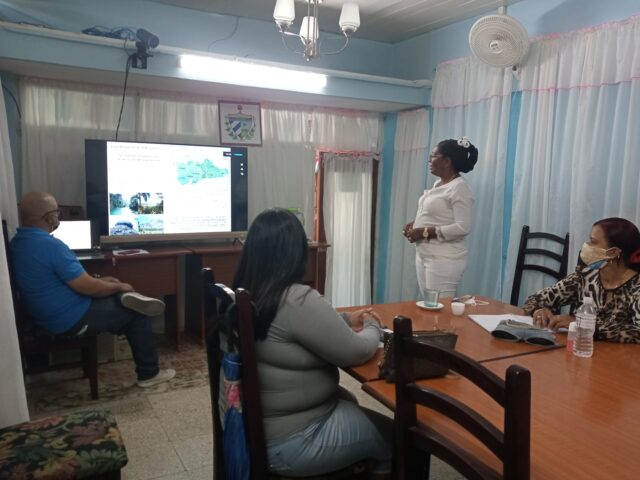 Guantanamo.- Guantánamo stands out in the country for carrying out 10 Hazard, Vulnerability, and Risk (HVR) studies. These results provide a comprehensive overview to governments, agencies, and institutions, which enable them to adopt appropriate measures and prevent unfortunate events.
Guantanamo.- Guantánamo stands out in the country for carrying out 10 Hazard, Vulnerability, and Risk (HVR) studies. These results provide a comprehensive overview to governments, agencies, and institutions, which enable them to adopt appropriate measures and prevent unfortunate events.
Environmental specialists work together with Civil Defense and the leading management centers to reduce the effects of disasters by monitoring plans aimed at reducing risks in the states and municipalities.
It was reported by Subdelegate Lisandra Rubio Rodiles, who highlighted the courses to disseminate the results of the PVRs conducted in the territories, based on the incidence of phenomena such as heavy rains, strong winds, rural fires, landslides, drought, and coastal flooding caused by the penetration of the sea.
Likewise, an environmental impact assessment of Hurricane Oscar, which hit the eastern part of the province last October, and an updated report on the perception of seismic risk for the province were prepared in conjunction with the Cuban National Center for Seismological Research.
Also, Lisandra Rubio Rodiles, the Subdelegate for the Environment in the territory, points out that work is underway to complete the Epiphytia Hazards, Vulnerabilities, and Risks Study, which analyzes the diseases and pests that affect plants and can have impact on human life.
These investigations in Guantánamo offer valuable tools for land use planning and mitigating the effects of climate change on human settlements, natural resources, agriculture, and other sectors.